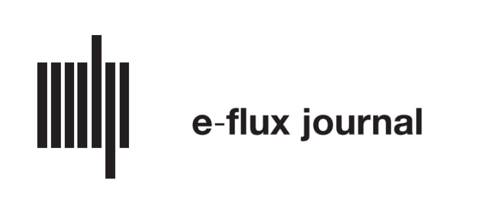Editor Boris Groys in conversation with Claire Bishop and Anton Vidokle
March 27, 2018, 7pm
“Russian Cosmism rejected the contemplative for the transformative, aiming to create not merely new art or philosophy but a new world”
Join us for the launch of Boris Groys’s newest edited volume, Russian Cosmism, co-published by e-flux and The MIT Press (2018). The evening will feature Groys in conversation with art historian Claire Bishop and artist Anton Vidokle.
Cosmism emerged in Russia before the October Revolution and developed through the 1920s and 1930s; like Marxism and the European avant-garde, two other movements that shared this intellectual moment, Russian Cosmism rejected the contemplative for the transformative, aiming to create not merely new art or philosophy but a new world. Cosmism went the furthest in its visions of transformation, calling for the end of death, the resuscitation of the dead, and free movement in cosmic space. This volume, edited by Boris Groys, collects crucial texts—many available in English for the first time—by the radical biopolitical utopianists of Russian Cosmism.
The late-nineneenth-century Russian philosopher Nikolai Fedorov believed that humans had an ethical obligation not only to care for the sick but to cure death using science and technology; outer space was the territory of both immortal life and infinite resources. After the revolution, a new generation pursued Fedorov’s vision. Cosmist ideas inspired visual artists, poets, filmmakers, theater directors, novelists (Tolstoy and Dostoevsky read Fedorov’s writings), architects, and composers, and influenced Soviet politics and technology. In the 1930s, Stalin quashed Cosmism, jailing or executing many members of the movement. Today, when the philosophical imagination has again become entangled with scientific and technological imagination, the works of the Russian Cosmists are newly alive and relevant.
Admission is free; no RSVP necessary. Seating is first come, first-served. The event will be livestreamed on e-flux.com/live.
Praise for Russian Cosmism:
“Russian Cosmism (e-flux and The MIT Press) is one of the West’s first comprehensive publications on the subject, a collection of essays by its most prominent scholars, edited by Boris Groys, Professor of Russian and Slavic studies at New York University. It is a truly fascinating, eye-opening read. …
The Russian Cosmists’ rich philosophical imagination, their persistent, if somewhat naive and dream-like, search for human happiness and immortality by means of science and technology cannot fail to cause admiration even now, in the era of space exploration, computers and artificial intelligence. Collecting their main ideas under one cover is a highly commendable and extremely timely achievement, on which this book’s compilers, editors and publishers must be congratulated.”
—Vitali Vitaliev, E&T, February 21, 2018
“Russian Cosmism, edited by the art theorist Boris Groys, collects 13 extracts from Cosmist writings, mostly of the 1920s, and argues for their contemporary relevance to art (the contemporary museum) and politics (the ‘biopolitical’ power of the state, its ability to shape lives and landscapes). Consider for example the environmental futurism of Konstantin Tsiolkovsky, who in ‘The Future of Earth and Mankind’ imagines deserts and tropical regions put to agricultural use. A vast army of workers would traverse such territories, while above them a protective metal net was erected. This mesh would advance with the workers, and behind it new dwellings could be built … Such details capture the odd mix of airy whimsy and practical prescience at work in Cosmist thought.
For Groys, Cosmism wants to corral and protect life: fully achieved, it would mean ‘a radical museumification of life.’ In this sense, Russian Cosmism extends an argument Groys has been making for years, and notably in his 2008 book Art Power: that the contemporary museum may, surprisingly, be the most transformative place for art and artists today—a utopian space away from the art market, in which any and all experiments will be tolerated and will find a public.”
—Brian Dillon, 4Columns, March 2, 2018
Claire Bishop is a Professor in the PhD Program in Art History at the Graduate Center, City University of New York. Her books include Installation Art: A Critical History (2005), Artificial Hells: Participatory Art and the Politics of Spectatorship(2012), and Radical Museology, or, What’s Contemporary in Museums of Contemporary Art? (2013).
Boris Groys is an art critic, media theorist and philosopher. He is Global Distinguished Professor of Russian and Slavic Studies at New York University, Senior Research Fellow at the Karlsruhe University of Art and Design, and Professor of Philosophy at the European Graduate School (EGS).
Anton Vidokle is an artist and co-editor of e-flux journal.
Russian Cosmism, edited by Boris Groys
e-flux and MIT Press, 2018
Hardcover, 264 p, 6x9 in.
ISBN: 9780262037433
Contributors
Alexander Bogdanov
Alexander Chizhevsky
Nikolai Fedorov
Boris Groys
Valerian Muravyev
Alexander Svyatogor
Konstantin Tsiolkovsky
Preface by Anton Vidokle, Brian Kuan Wood
Introduction by Boris Groys
Translations from the Russian by
Thomas Campbell, Ian Dreiblatt, Anastasiya Osipova, Caroline Rees, Anastasia Skoybedo

